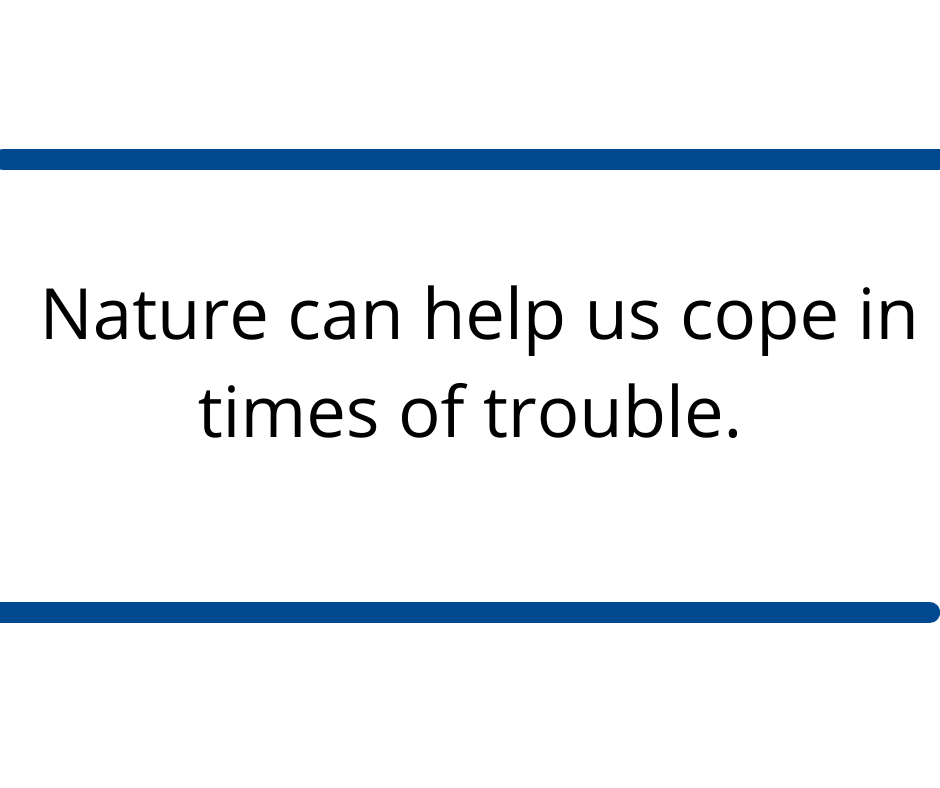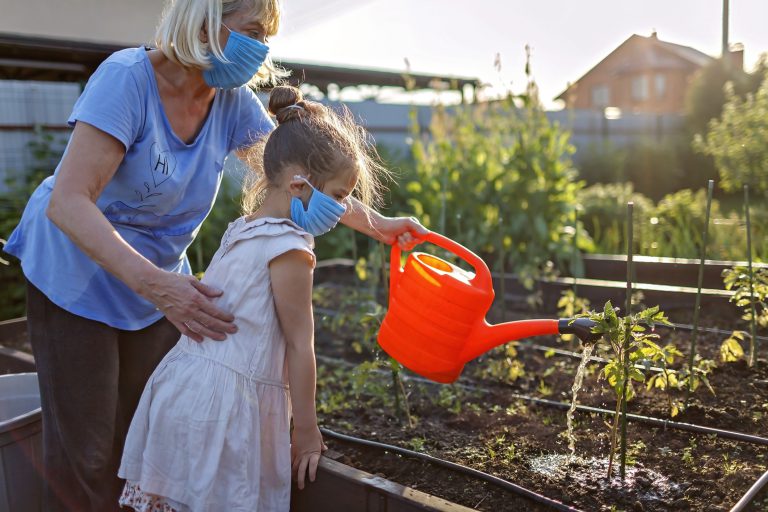By Elizabeth Burger, Senior Program Officer, Sunflower Foundation
Originally published in the Fall 2021 Issue of Kansas Child Magazine.
“Every child needs nature. Not just ones whose parents appreciate nature. Not just those of certain economic class or culture or set of abilities. Every child.”
First published in 2005, these words from Richard Louv’s book, “Last Child in the Woods,” hold even more power today. During the most difficult months of COVID-19, when most schools and child care facilities were closed, there was still one place of refuge, recreation, and rejuvenation for our children: Nature.

Nature’s healing forces don’t need to be found on a faraway mountaintop or in a tropical destination; research indicates that even a few minutes outside in green space can reduce stress, anxiety, and depression and enhance mood, creativity, and resiliency. Science confirms what many of us instinctively know: Nature can help us cope in times of trouble.
However, like so many systemic inequities laid bare by COVID-19, far too many children, families, and communities lack access to nature they can turn to for reprieve and respite.
Research reveals what most of us see in our own communities; just think about which neighborhoods in your community have the most trees and the nicest parks and sidewalks. Ironically, nature’s benefits are relatively greater for those most negatively impacted by economic disadvantage, systemic racism, and other challenges — the very factors that lead to communities without ready access to parks, trails, and green space. Children in isolated rural areas can also suffer, due to a lack of public land and safe places to bike or walk.
Sunflower Foundation is committed to the health and well-being of children and families across the state. We began investing in community and school trails in 2005, hoping to increase equitable opportunities for outdoor recreation and connections to nature. Over the years, we’ve been inspired by our grantee partners, including and especially schools. That quarter-mile loop of asphalt in the schoolyard becomes so much more when creative teachers, staff, parents, and students get involved. Many schools use the trail for science lessons, pre-test “wiggle walks,” all-inclusive running clubs, and “walking, talking buddies” for painfully shy students.
A child doesn’t need expensive equipment or special training to meander on a trail or explore a public park with their family, friends, or imagination. As Richard Louv said, nature’s benefits to children transcend any kind of socioeconomic status or demographic.
Sunflower Foundation is grateful to all the schools and communities that recognize the importance of investing in green spaces and trails. We look forward to future partnerships to ensure that every child has the chance to experience the healing power of nature.
Elizabeth directs the Healthy Living & Active Communities portfolio, overseeing grants and initiatives that focus on system changes to help make “the healthy choice, the easy choice” around physical activity and nutrition. Elizabeth grew up in the country and never tires of being outside, preferably hiking or running. She is thrilled to channel this personal passion to help communities, schools, and nonprofits develop safe, accessible, and inviting trails for people of all ages, abilities, backgrounds, and incomes. She believes the magic of the Sunflower Trails program is the potential to create equitable opportunities for everyone to connect to their own movement patterns and the rhythms of the natural world.
-

Child Care Aware of Kansas
Child Care Aware of Kansas connects everyone with a stake in child care — parents, child care providers, businesses, local and state leaders, and community members — to the information and ideas they need to take action. We provide opportunities, connections, and support for Kansans to envision what a better child care system can look like for them. Working within a network of Child Care Resource & Referral agencies, we also connect caregivers and providers to the information and support they need.






